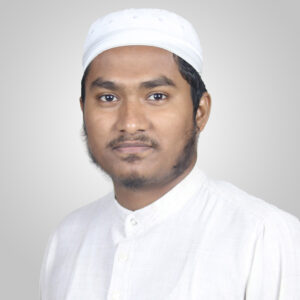When we think of zakat, the first image that comes to mind is usually charity in its simplest form—feeding the poor, giving out cash, or distributing clothes. Noble acts, yes. But what happens after the meal is finished, or the money runs out?
That’s where OBHIZATRIK Foundation is taking a bold step. Through its SHOKKHOM Project, they’re reimagining zakat not as temporary relief, but as a tool for long-term empowerment—helping families build livelihoods and break the cycle of poverty.
Instead of handing out one-time aid, OBHIZATRIK gives families the resources, skills, and guidance to stand on their own feet. Think of it this way: they’re not just giving fish—they’re teaching people to fish. And sometimes, they even provide the fishing boat.
The SHOKKHOM process is simple yet effective. First, candidates are carefully screened in underserved areas, assessing financial history, skills, and willingness to work. Then they’re matched with donors and livelihood projects, from rickshaws and sewing machines to livestock and farming equipment. Before launching, beneficiaries undergo 7–10 days of training in business, technology, and financial literacy. Finally, they begin their journey toward self-reliance, equipped to earn income with dignity.
The program offers a variety of livelihood models:
-
Transportation: Rickshaws, vans, CNGs, motorbikes, and boats for fishing or goods transport.
-
SMEs: Tea stalls, grocery shops, sewing machines, food stalls, mobile shops.
-
Livestock: Cows, goats, sheep, poultry setups, fisheries.
-
Agriculture: Land cultivation support, power tillers, and farming equipment.
Each model is designed around local market realities, ensuring sustainable income for families.
The impact is tangible. So far, SHOKKHOM has empowered 1,350 families across 11 districts of Bangladesh. Beyond individual households, this ripple effect boosts local economies, strengthens food security, and inspires other communities to rise. During COVID-19, OBHIZATRIK also provided emergency aid, but the SHOKKHOM Project shows their long-term vision: turning charity into change that lasts.
The real magic is in the success stories:
-
“When I applied for the Goat project, I received two goats. A few months ago, my goat gave birth to two calves. I plan to rear them and sell them in the upcoming Eid haat. Eventually, I hope to make and sell goat cheese.” — Farzana Akhter, Goat owner
-
“I could never afford to purchase a cow myself. Now I have one that gives enough milk to sell. My wife and I plan to make dairy products like ghee in the future.” — Quddus Mia, Cow farmer
-
“With three school-going kids, it was hard for my husband to manage alone. Thanks to OBHIZATRIK, I now run a small shop that helps buy groceries and educational items, easing a huge burden from my husband’s shoulders.” — Anjuman, Shop owner
-
“I’d been trying to save for a rickshaw, but it was too expensive. Thanks to OBHIZATRIK, I now own one. On busy days, I earn up to 1,500 taka, enough to feed my family and send the kids to school.” — Yusuf Mollah, Rickshaw owner
The takeaway? Zakat is not just a duty—it’s an opportunity. OBHIZATRIK is showing how powerful it can be when invested in people, their skills, and their futures. It’s about turning charity into lasting change, one livelihood at a time.
👉 If you’d like the visual version, here’s the presentation link.
Check this to learn more about that.
#Islamic_Social_Finance #Zakat #Zakat_Case #Social_Impact


